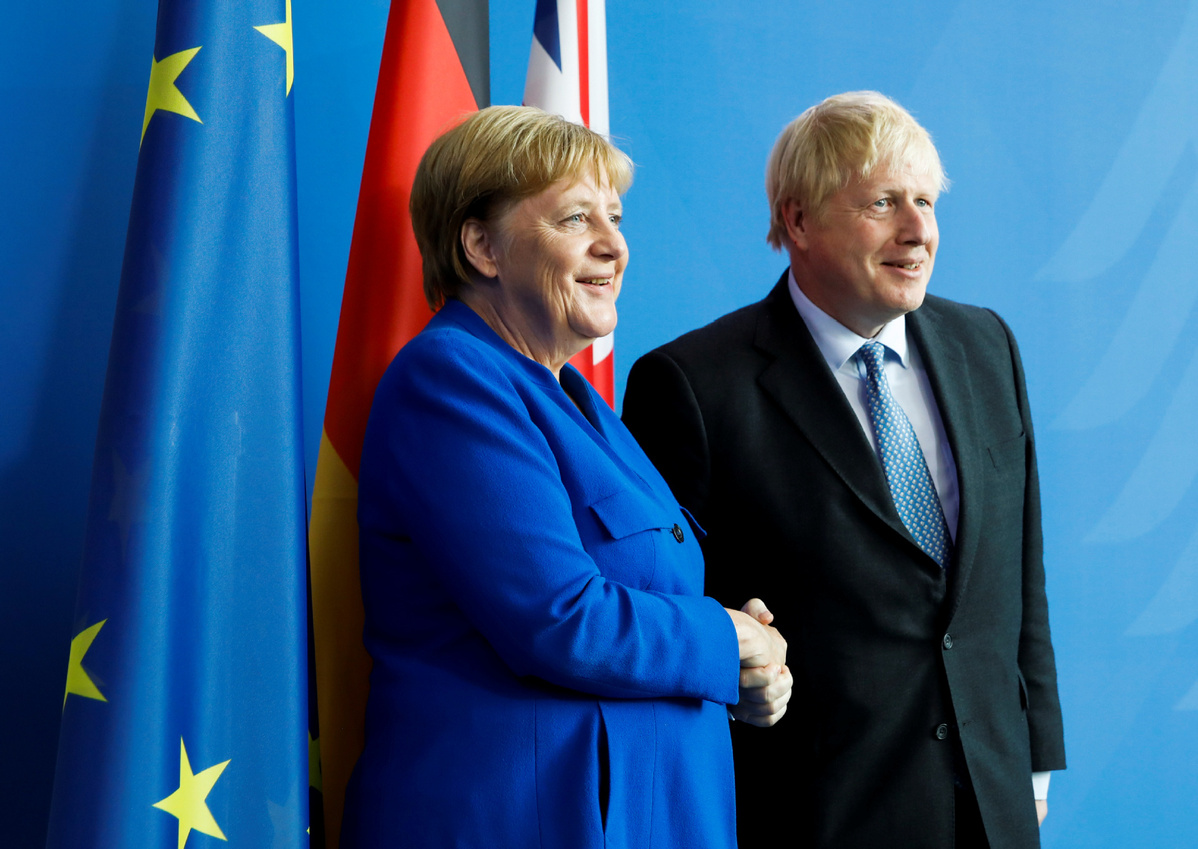Merkel urged to budge on Brexit
By Julian Shea in London | China Daily | Updated: 2019-08-22 09:40

Boris Johnson made his first overseas trip since becoming British prime minister when he visited German Chancellor Angela Merkel in Berlin on Wednesday.
He repeated his demand that the Northern Ireland backstop be dropped from any withdrawal terms for the United Kingdom's divorce from the European Union.
But his request was widely expected to fall upon deaf ears for the second time in 24 hours, having already been firmly rejected by European Council President Donald Tusk on Tuesday.
With the so-called backstop in place, some EU regulations would continue to apply to Northern Ireland after Brexit in order to avoid a hard border between the UK territory and EU member the Republic of Ireland.
Johnson wrote in the letter to Tusk that such a provision would be "inconsistent with the sovereignty of the UK as a state".
He even went so far as to suggest that it threatened the 1998 Good Friday Agreement, which ended three decades of violent conflict in Northern Ireland.
However, Tusk brushed off Johnson's proposal and politicians close to Merkel have backed this stance, saying Johnson has taken completely the wrong approach.
"The letter to the president of the European Council is not a serious offer, and Boris Johnson knows it," said Norbert Rottgen, head of the German Parliament's Foreign Affairs Committee.
"To suggest the backstop could weaken the Good Friday Agreement - that's strong stuff. If Johnson really wanted to achieve something on his visits to Paris (where he will meet French President Emmanuel Macron on Thursday) and Berlin, he would have been well advised against writing this letter," Rottgen said.
Speaking before meeting Johnson, Merkel said the backstop was only a position of last resort, and once "a practical solution" honoring the Good Friday Agreement and allowing trade is found, it would not be necessary.
However, she also stood by the EU's policy of not allowing alterations to the withdrawal agreement the EU reached with Johnson's predecessor, Theresa May. The UK Parliament has already rejected the agreement three times.
"The EU is ready to find a solution, but for that there is no need to reopen the withdrawal agreement. It is a question of future ties. Britain needs to decide which way it goes," said Merkel, who is particularly opposed to hard borders, having grown up in the divided postwar Germany.
Johnson admitted the response to his letter had been "a bit negative" but a deal was still possible.
"I hope we'll be making some progress in the course of the next few weeks," he said. "As long as they think there is a possibility that parliament will block Brexit, they are unlikely to make the concessions that we need, so it's going to take a bit of patience."
























